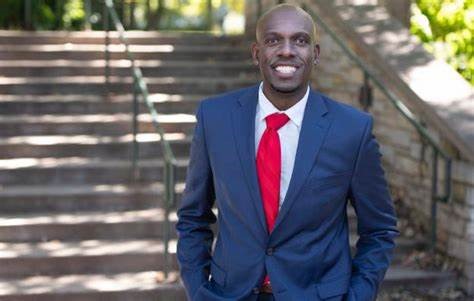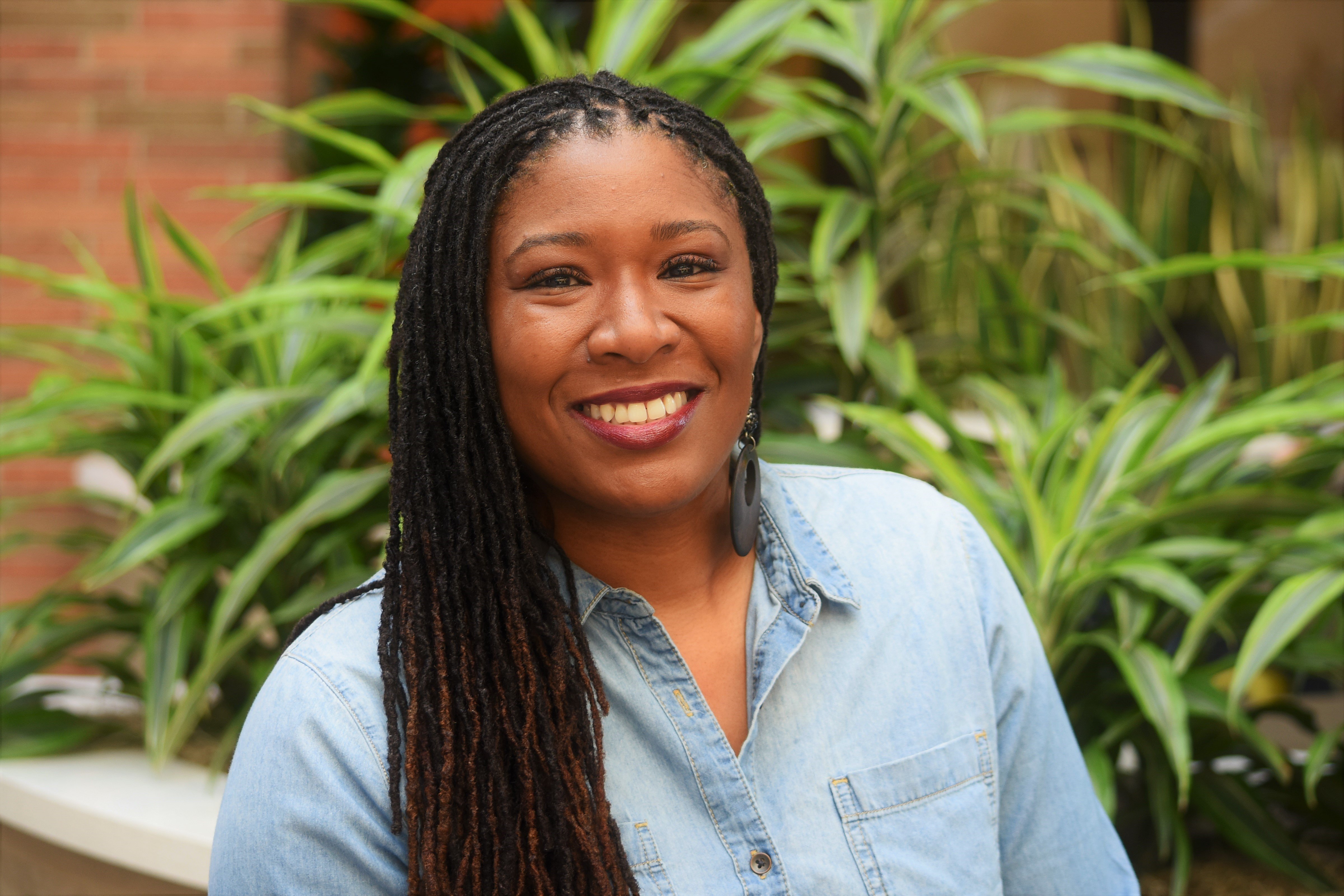Culturally Responsive Practices for Helping Professionals Supporting Diverse Youth
Friday, April 11, 2025
8:30 AM - 12:00 PM
Online via Zoom
Friday, April 11, 2025 | 8:30 AM - 12:00 PM (CST) | Online Via Zoom
Cost: $45
Hosted by: Professional School Counseling Program in the Department of Counseling and Student Personnel, School Psychology Doctoral Program, Social Work Department with funding provided by the Minnesota Department of Education and co-sponsored by the Blue Cross® and Blue Shield® of Minnesota Center for Rural Behavioral Health
The recording of this training will be sent to all registered individuals.
Earn 3 CEUs in Cultural Competence (or 2 CEUs in Cultural Competence / 1 CEU in Supervision).
CEUs pre-approved by the Minnesota Board of Social Work, Minnesota Board of Psychology, and the National Board of Certified Counselors (NBCC).
Counseling and Student Personnel has been approved by NBCC as an Approved Continuing Education Provider, ACEP No. 4558.

TOPICS & PRESENTERS:
Opening Remarks
Megan Lagasse, MSW, LICSW - Student Support Personnel Specialist for the Equity Diversity and Inclusion Center at the Minnesota Department of Education
Presenter Bio:
Megan Lagasse (she/her) is the Student Support Personnel Specialist for the Equity Diversity and Inclusion Center at the Minnesota Department of Education. She is a licensed independent clinical social worker. Previous to joining MDE, she was a school social worker for 15 years in four Minnesota school districts. Megan led secondary social-emotional-behavioral intervention in the Anoka-Hennepin School District for 2 years and the school social work department for 7 years. Now in her current role, she supports the recruitment, retention, and professional growth of student support personnel in Minnesota.
Promoting Integration and Inclusion in Minnesota K-12 Schools
Derek Francis, MA, LSC (MN)

Many student support personnel and school staff are seeking effective ways to engage students from diverse backgrounds. According to the Minnesota State Demographic Center, the number of school-aged children in Minnesota is projected to rise significantly over the next three decades, with a notable increase in the population of Black, Indigenous, and people of color (BIPOC). By 2050, it is estimated that one-third of Minnesota's population will be BIPOC. Every member of the school community plays a crucial role in helping students explore and feel affirmed in their identities, understand differences, and challenge biases. To create truly inclusive schools, educators must recognize historical systemic and interpersonal racism and discrimination and its impact in today's school environment. Equally important is equipping educators with the skills and resources necessary to foster a welcoming and supportive learning atmosphere for all students.
Learning Objectives:
- Learn a deeper understanding of own multiple identities to build closer cross cultural and inclusive environment.
- Unpack the history of school integration in Minnesota and patterns of race privilege and bias in education.
- Engage in culturally responsive strategies to affirm students identities and promote an inclusive schools.
- Reflect on the importance of recruiting and retaining diverse student support staff.
Presenter Bio:
Derek Francis has over 14 years of experience in education. As a school counselor at North High in Minneapolis, Derek was a part of a staff that supported students from the lowest graduation rate in the district to a 39% increase in two years. After navigating several major racial incidents in schools, Derek began creating strategies to help educators grow in their skillset of discussing race and identity in school. As Executive Director of Equity and School Climate In Minneapolis Public Schools, Derek implemented a comprehensive equity strategies including elementary school counseling positions, implementing the districts first Racial Harm Protocol, and created MPS Neighborhood virtual education programming. Derek has delivered over 30 keynote presentations and sessions at school counselor and equity conferences including the American School Counseling Association (ASCA) and American Counseling Association. Derek has recently produced Separate Not Equal - The Minnesota Integration Story which premiered this October at the 2024 Twin Cities Film Festival. Derek serves as the Culturally Responsive Instructional Lead for COMPASS/Brightworks, a collaborative of Minnesota Department of Education and Professional Development Specialist for Hatching Results. Derek has his Masters of Arts Educational Psychology and School Personnel from the University of Minnesota and his BA in Communications from Augsburg University.
Transforming Clinical Supervision: A Socioculturally Attuned Approach
Rashida Fisher, PhD, LPCC, LADC

Traditional clinical supervision often falls short in fostering multicultural counseling competencies due to supervisors' varying levels of cultural competence. Culturally responsive supervision is essential for developing ethical, effective, and socially aware counselors. By intentionally integrating Multicultural and Social Justice Counseling Competencies, supervisors help supervisees build the knowledge, awareness, and skills necessary to serve diverse clients with cultural humility and sensitivity. Best practices emphasize that supervisors should initiate conversations about culture and identity early, laying the foundation for a strong supervisory relationship rooted in mutual respect and trust. However, culturally responsive supervision extends beyond acknowledgment—it requires active engagement in the supervision triad (supervisee, client, and supervisor), ensuring that cultural awareness informs every level of the clinical process. This session will equip participants with foundational knowledge, practical strategies, and self-reflective tools to integrate cultural responsiveness into clinical supervision. Key discussion topics include intersectionality, cultural humility, and mentorship, highlighting their role in fostering ethical and inclusive supervisory practices.
Learning Objectives:
- Understand the importance of supervisor self-awareness and its bearing on the supervisory relationship.
- Learn the best practices in multicultural/ culturally centered clinical supervision.
- Learn how to acknowledge and intentionally address cross-cultural challenges within the supervisory relationship.
Presenter Bio:
Rashida K. Fisher is a clinical counselor, educator, consultant, and coach with nearly 20 years of experience in clinical counseling, supervision, counselor education, and organizational training. She is the Founder of Ujima Healing and Consulting and currently serves as the Dean of Faculty and Students and an Associate Faculty Member at Adler Graduate School.
As an Inclusion, Diversity, Equity, and Accessibility (IDEA) practitioner, Dr. Fisher brings a wealth of experience in supporting businesses, government agencies, nonprofits, and educational institutions in fostering equitable, Socioculturally attuned, and Trauma informed/psychologically safe environments. She is also a qualified Intercultural Development Inventory (IDI) administrator, helping individuals and organizations assess and develop intercultural competence.
Dr. Fisher is known for delivering engaging, thought-provoking, and transformational talks. Her workshops, trainings, and facilitated dialogues integrate expertise, passion, and authenticity, inspiring reflection, self-awareness, and meaningful progress toward equity and justice. She has successfully designed and led IDEA and wellness-focused initiatives for senior leaders, managers, and staff, fostering environments that support learning, healing, and growth.
With a strong background in trauma-informed and culturally responsive care, Dr. Fisher’s clinical expertise includes working with co-occurring disorders, addiction, and holistic mental health approaches. Her therapeutic framework is integrative and holistic, deeply influenced by Adlerian/Individual Psychology, wellness-based modalities, and a multicultural, liberation, and social justice lens.
Dr. Fisher’s primary research interests include trauma, addiction, sexuality, multicultural and social justice issues, restorative justice practices, and workforce development in the counseling profession. Her work is dedicated to empowering individuals, organizations, and communities through healing-centered engagement, equitable practices, and transformative leadership.
Not able to attend April 11th?No problem. Register for the recorded session and a link to view it will be emailed to you after the April 11th training.
Registration Questions: Email workforce@mnsu.edu or call 507-389-1094
Training Questions: Email elizabeth.harstad.3@mnsu.edu
Center for Workforce Professional Education
workforce@mnsu.edu


